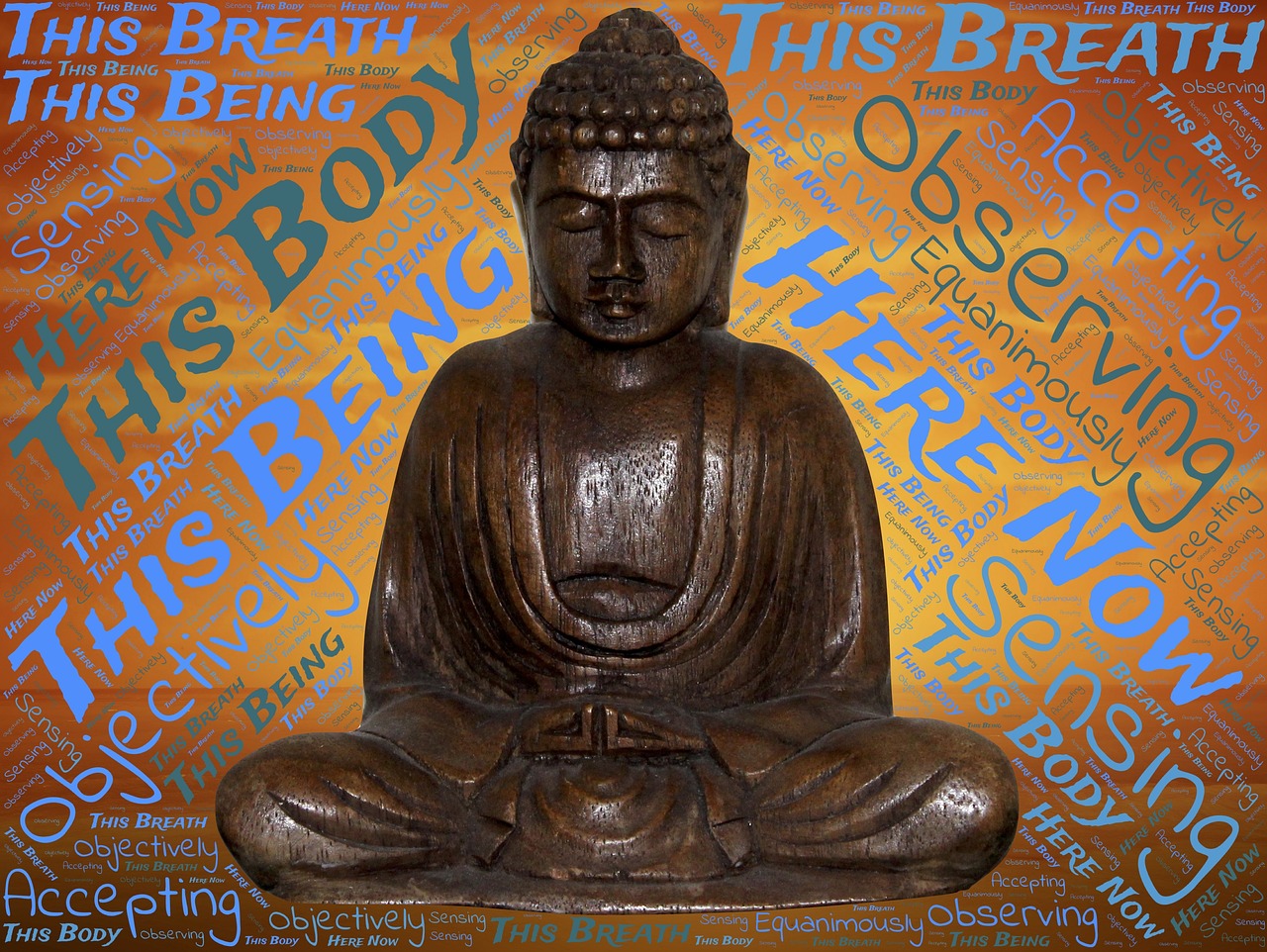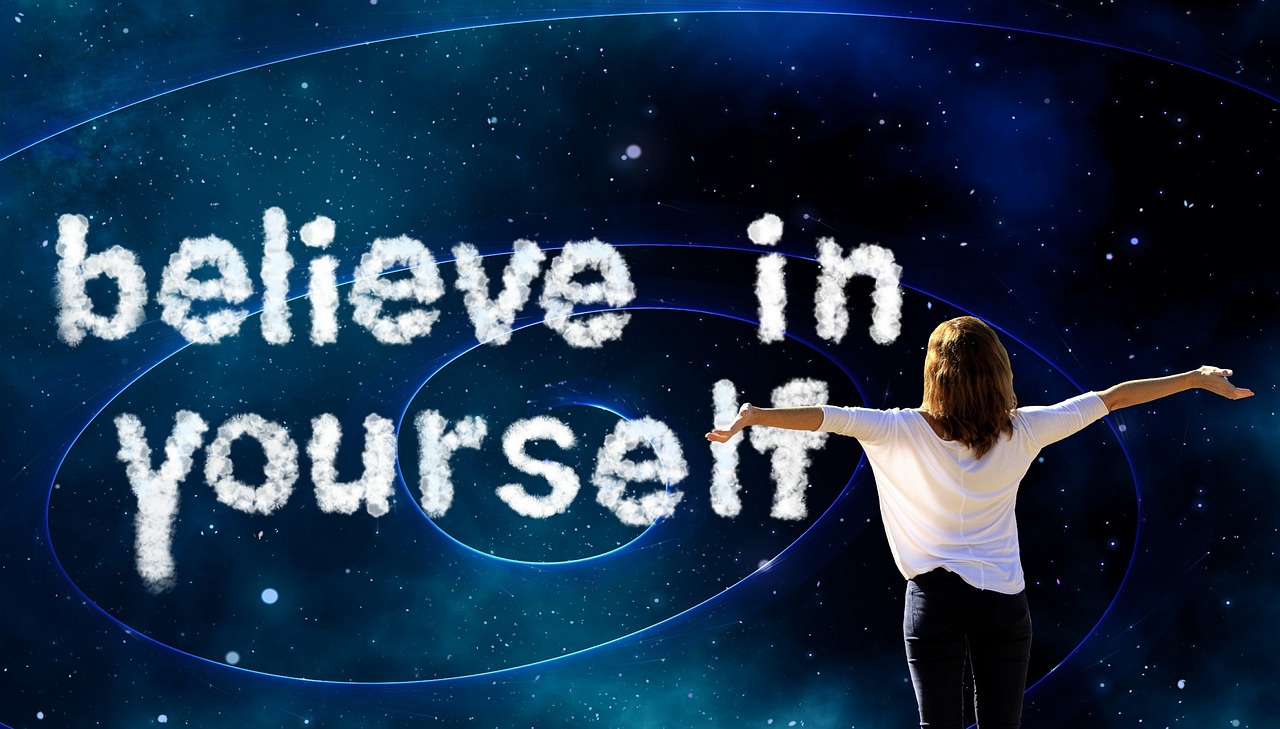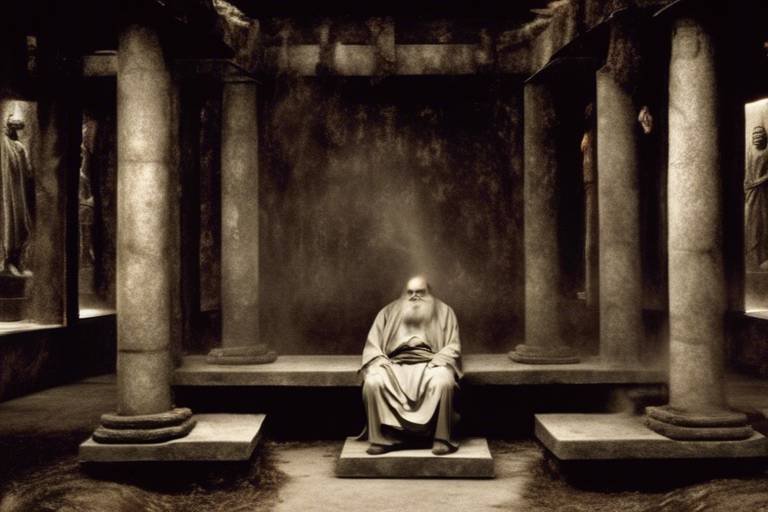Can Ontology Unravel the Enigma of Consciousness?
Have you ever pondered the mysteries of your own mind? The question of consciousness is one that has baffled thinkers for centuries. What does it mean to be conscious? How do our thoughts, feelings, and experiences come together to create our perception of reality? In this exploration, we dive into the intriguing intersection of ontology and consciousness, seeking to unravel the complexities that define our very existence.
At its core, consciousness is not just about being awake or aware; it's a rich tapestry woven from our experiences, memories, and emotions. Think of it as a vibrant painting, where every stroke represents a different aspect of our mental life. From the fleeting thoughts that flit through our minds to the deep, existential questions that keep us up at night, consciousness encompasses a vast array of phenomena that we are only beginning to understand.
Now, enter ontology—the philosophical study of being and existence. It’s like the foundation of a house, providing the essential framework upon which our understanding of consciousness can be built. By examining the nature of existence, ontology challenges us to consider what it truly means to “be.” This inquiry is crucial because, as we explore consciousness, we must also grapple with the underlying structures that shape our understanding of reality.
So, can ontology help us make sense of consciousness? Absolutely! By examining different ontological perspectives, we can gain new insights into how our minds operate and how consciousness relates to the physical world. Imagine trying to solve a complex puzzle; each piece represents a different philosophical view, and when combined, they can reveal a clearer picture of our conscious experience.
Throughout history, philosophers have wrestled with these questions, offering diverse perspectives that continue to influence contemporary thought. From Plato’s ideal Forms to Aristotle’s substance theory, the journey through ontological thought is rich and varied. Each philosopher contributes a unique lens through which we can examine consciousness, challenging us to rethink our assumptions and broaden our understanding.
As we delve deeper into this fascinating topic, we will explore modern ontological theories and their implications for the philosophy of mind. By embracing a variety of viewpoints, we can begin to piece together the intricate puzzle of consciousness, revealing the profound connections between our mental states and the nature of existence itself.
- What is consciousness? Consciousness refers to the state of being aware of and able to think about one's own existence, thoughts, and surroundings.
- How does ontology relate to consciousness? Ontology explores the nature of being and existence, providing a framework for understanding the complexities of consciousness.
- What are some historical perspectives on ontology? Key historical figures include Plato, who proposed the theory of Forms, and Aristotle, who developed substance theory, both of which have influenced contemporary views on consciousness.
- What is dualism and physicalism? Dualism posits that mind and body are separate entities, while physicalism argues that everything, including consciousness, can be explained by physical processes.
- What is panpsychism? Panpsychism is the view that consciousness is a fundamental feature of all matter, suggesting that even the smallest particles possess some form of consciousness.

The Nature of Consciousness
Understanding consciousness is like trying to catch smoke with your bare hands; it’s elusive, complex, and often leaves us questioning our very existence. At its core, consciousness can be defined as the state of being aware of and able to think about one’s own existence, thoughts, and surroundings. It’s the inner voice that narrates our experiences, the light that illuminates our perception of reality. But what exactly is it? Throughout history, philosophers, scientists, and thinkers have grappled with this question, offering a multitude of definitions and theories that reflect their cultural and intellectual contexts.
Consciousness is not merely a biological function; it's a rich tapestry woven from our experiences, emotions, and interactions. One might say it’s the software that runs on the hardware of our brains. This perspective leads us to consider several key characteristics of consciousness:
- Subjectivity: Each person's conscious experience is unique, shaped by personal history and emotions.
- Intentionality: Consciousness often has an object; we are aware of something, whether it's an idea, a feeling, or an external object.
- Unity: Despite the multitude of thoughts and sensations we experience, consciousness presents these as a cohesive whole.
- Continuity: Consciousness is not static; it flows and evolves, influenced by our thoughts and external stimuli.
Historically, the nature of consciousness has spurred a variety of theories. Ancient philosophers like Descartes famously declared, "I think, therefore I am," emphasizing the connection between thought and existence. In contrast, more contemporary views have questioned whether consciousness is a mere byproduct of brain activity or if it holds a deeper ontological significance. This ongoing dialogue raises profound philosophical questions: Is consciousness an emergent property of complex systems, or is it something more fundamental, woven into the very fabric of reality?
As we delve deeper, it becomes clear that consciousness is not just a topic for philosophers; it has implications in numerous fields, from psychology to artificial intelligence. For instance, understanding consciousness can enhance our approaches to mental health, informing therapeutic practices that cater to the subjective experiences of individuals. Similarly, in the realm of AI, discussions about consciousness challenge us to consider what it means to be 'aware' and whether machines could ever truly possess consciousness or merely simulate it.
In conclusion, the nature of consciousness is a multifaceted enigma that intertwines with our understanding of existence itself. As we continue to explore this profound concept, we must remain open to the various interpretations and insights that arise from both historical and modern perspectives. Each inquiry into consciousness not only broadens our understanding but also invites us to reflect on our own experiences and the very essence of being.

Ontology: A Brief Overview
Ontology, as a branch of philosophy, dives deep into the fundamental questions surrounding the nature of being and existence. At its core, ontology asks, "What is there?" and "What does it mean to exist?" These inquiries are not just academic; they resonate through various fields, influencing everything from science to metaphysics. Imagine ontology as the blueprint of reality, outlining the different categories of existence and how they interrelate. It's like trying to piece together a vast puzzle, where each piece represents a different aspect of existence.
One of the key concepts in ontology is the distinction between entities and properties. Entities are the things that exist—like trees, animals, and even abstract concepts like love or justice—while properties are the characteristics that describe these entities. For instance, a tree is an entity, and its height or color are properties. This fundamental distinction helps in navigating the complexities of what it means for something to exist. Additionally, ontologists explore various categories of being, such as concrete versus abstract entities, which further enriches our understanding of existence.
Furthermore, ontology doesn't operate in isolation. It intersects with various disciplines, including linguistics, computer science, and cognitive science. In linguistics, ontological categories can influence how we structure language and convey meaning. In computer science, ontologies are used to create frameworks for organizing information, facilitating better data management and retrieval. This cross-disciplinary relevance underscores the importance of ontology in comprehending the broader implications of consciousness.
To illustrate, consider the table below, which summarizes some of the key branches of ontology:
| Branch of Ontology | Description |
|---|---|
| Metaphysical Ontology | Focuses on the nature of reality and existence, exploring concepts like being, existence, and the universe. |
| Formal Ontology | Involves the study of the structure of entities and their relationships in a formalized manner, often applied in computer science. |
| Social Ontology | Examines the nature of social entities and the structures that govern social reality. |
This brief overview sets the stage for understanding how ontology can shed light on the intricate tapestry of consciousness. By examining the underlying principles of existence, we can begin to unravel the mysteries of conscious experience. As we delve deeper into the relationship between ontology and consciousness, we will see how these philosophical inquiries can influence our understanding of the mind and its myriad complexities.
- What is ontology? Ontology is the philosophical study of the nature of being, existence, and reality.
- How does ontology relate to consciousness? Ontology helps to frame the questions and categories we use to understand consciousness and its place in the universe.
- Why is ontology important in other fields? Ontology influences areas like linguistics and computer science by providing frameworks for understanding and organizing information.

Historical Perspectives on Ontology
When we dive into the rich tapestry of ontology, it's essential to understand that this branch of philosophy has evolved over centuries, shaped by the thoughts and theories of some of the greatest minds in history. The journey begins in ancient Greece, where philosophers like Plato and Aristotle laid the groundwork for ontological inquiry. Their explorations into the nature of existence and reality are not merely academic exercises; they resonate deeply with our quest to understand consciousness itself.
Plato, for instance, introduced the concept of the Realm of Forms. He posited that beyond our tangible world lies a higher reality, where perfect forms of all objects and concepts exist. This idea raises profound questions about consciousness: if our thoughts and perceptions are merely shadows of these perfect forms, what does that say about the nature of our awareness? Plato’s allegory of the cave illustrates this beautifully—imagine prisoners chained in a cave, only able to see shadows on the wall, mistaking these illusions for reality. This metaphor serves as a powerful reminder that consciousness may be just a glimpse of a far more complex reality.
On the other hand, Aristotle offered a more grounded perspective with his Substance Theory. He argued that substances are the fundamental realities that exist independently and are characterized by their properties and relations. For Aristotle, understanding consciousness involves examining the essence of individual experiences and the substances that constitute them. This perspective invites us to consider how our consciousness is shaped by the physical world around us, suggesting a more intertwined relationship between mind and matter.
As we move through history, we encounter a variety of ontological theories that further enrich our understanding. The medieval period introduced thinkers like Thomas Aquinas, who synthesized Aristotelian thought with Christian theology, emphasizing the existence of a divine being as the ultimate source of all existence. The Enlightenment brought about a shift with philosophers like Descartes, who famously declared, “I think, therefore I am,” highlighting the importance of self-awareness in defining existence. This focus on the thinking subject marked a significant turn in ontological discussions, steering them towards the subjective experience of consciousness.
In modern times, ontological inquiries have branched out into various schools of thought, including existentialism and phenomenology. Thinkers like Heidegger and Merleau-Ponty emphasized the lived experience and the embodied nature of consciousness, arguing that our understanding of being is inseparable from our experiences in the world. This perspective challenges us to consider how our conscious awareness is not just a passive reflection but an active engagement with our environment.
As we contemplate these historical perspectives, it's clear that ontology is not just a dry philosophical pursuit; it is a vital lens through which we can explore the complexities of consciousness. Each philosopher contributes a unique voice to the ongoing dialogue about what it means to exist and to be aware. The interplay between these ideas creates a rich framework that encourages us to ponder our own consciousness and the nature of reality itself.
In summary, the historical perspectives on ontology reveal a dynamic evolution of thought that continues to influence contemporary discussions about consciousness. From Plato's ideal forms to Aristotle's substance theory, and beyond, these foundational ideas challenge us to think deeply about the essence of our existence and our awareness of it.
- What is ontology? Ontology is the branch of philosophy that studies the nature of being, existence, and reality.
- How does ontology relate to consciousness? Ontology provides frameworks and perspectives that help us understand the complexities of consciousness and its relationship to existence.
- Who are key figures in the history of ontology? Key figures include Plato, Aristotle, Thomas Aquinas, René Descartes, Martin Heidegger, and Maurice Merleau-Ponty.
- What are some modern ontological theories? Modern theories include existentialism, phenomenology, and various forms of realism and idealism.

Plato and the Realm of Forms
Plato's philosophy is a fascinating tapestry woven with threads of metaphysics, ethics, and epistemology. At the heart of his thought lies the Realm of Forms, a concept that fundamentally shapes his understanding of reality and existence. Imagine, if you will, a world where the physical objects we encounter daily are mere shadows of a more perfect reality. This is the essence of Plato's theory: that beyond our tangible world exists a realm of ideal forms, which represent the true essence of all things.
In Plato's view, the physical world is transient and imperfect, a mere reflection of these eternal Forms. For instance, consider the concept of beauty. In our world, we see beautiful objects—flowers, art, or people—but these are all imperfect manifestations of the ideal Form of Beauty. According to Plato, to truly understand beauty, one must contemplate this Form, which exists beyond the physical realm. This idea not only raises profound questions about the nature of reality but also about the nature of consciousness itself. How do we come to know these Forms? How does our consciousness interact with a reality that transcends our sensory experiences?
Plato's theory invites us to consider consciousness as a tool for grasping these higher truths. He posits that through philosophical reasoning and intellectual insight, we can ascend from the shadows of the cave (a metaphor for our limited perception) into the light of true understanding. This journey is not merely academic; it is a transformative experience that shapes our very being and consciousness.
To illustrate this further, let's look at some key aspects of Plato's Realm of Forms:
| Aspect | Description |
|---|---|
| Immutability | The Forms are unchanging and eternal, unlike the physical world. |
| Universality | Forms represent universal truths that apply to all instances of a concept. |
| Knowledge | True knowledge is the understanding of the Forms, not just sensory experience. |
In essence, Plato's exploration of the Realm of Forms provides a framework for understanding consciousness as something that seeks to connect with higher truths. This perspective not only enriches our understanding of existence but also challenges us to reflect on our own consciousness. Are we merely experiencing the world as it appears, or are we capable of grasping the deeper realities that lie beneath?
As we navigate through the complexities of consciousness and existence, Plato's insights remain relevant. They urge us to question the nature of our reality and the essence of our being. By engaging with these ideas, we open ourselves to a richer, more profound understanding of both consciousness and the world around us.

Aristotle's Substance Theory
Aristotle's substance theory is a cornerstone of his philosophical framework, offering a distinctive approach to understanding the essence of things. Unlike his mentor Plato, who focused on abstract forms existing in a separate realm, Aristotle grounded his ideas in the tangible world. He proposed that substances are the fundamental realities that make up the world, which can be understood as individual entities possessing their own unique characteristics. This perspective challenges us to consider how we perceive consciousness as part of these substances.
At the heart of Aristotle's theory is the distinction between form and matter. Form refers to the essence of a substance—what makes it what it is—while matter is the physical substance that composes it. For example, consider a statue made of marble: the marble is the matter, and the shape or design of the statue is its form. This duality leads to an intriguing implication for consciousness: if consciousness can be seen as a form, then it must be intrinsically linked to the matter of the brain and body, suggesting that our thoughts and experiences are not separate from our physical existence.
Aristotle also introduced the concept of substantial change, which refers to the transformation of substances over time. This idea prompts us to ask: how does consciousness evolve as our bodies and experiences change? For instance, a person might undergo significant life changes—like moving to a new city or experiencing a loss—which can alter their consciousness. Aristotle's framework allows us to explore this dynamic relationship, emphasizing that consciousness is not a static entity but a fluid aspect of our existence.
Moreover, Aristotle's substance theory encourages a more holistic view of consciousness. He believed that to understand a substance, one must consider its context and relationships with other substances. This interconnectedness resonates with modern discussions about consciousness, where the environment, social interactions, and even cultural influences play crucial roles in shaping our mental states. Thus, Aristotle's insights provide a valuable lens through which we can examine consciousness, inviting us to explore how our individual experiences are woven into a larger tapestry of existence.
In summary, Aristotle's substance theory offers a rich framework for understanding consciousness by emphasizing the importance of form, matter, and the relationships between substances. As we delve deeper into the complexities of consciousness, his ideas remind us that our mental states are not isolated phenomena but are deeply rooted in the physical and relational aspects of our lives.
- What is Aristotle's view on the relationship between form and matter?
Aristotle posits that form is the essence of a substance while matter is the physical component. Together, they create a complete understanding of a substance. - How does Aristotle's substance theory relate to consciousness?
Aristotle's theory suggests that consciousness is a form that emerges from the physical substance of the brain and body, highlighting the interconnectedness of mind and matter. - What implications does substantial change have for understanding consciousness?
Substantial change implies that consciousness is dynamic and evolves with changes in our experiences and environment.

Modern Ontological Theories
In the ever-evolving landscape of philosophy, have emerged as pivotal frameworks that redefine our understanding of existence and its relationship to consciousness. Unlike their ancient predecessors, contemporary theories are often interdisciplinary, intertwining insights from psychology, neuroscience, and even quantum physics. This fusion of ideas has led to a rich tapestry of thought, sparking debates and discussions that challenge traditional notions of what it means to be conscious.
One of the most significant developments in modern ontology is the shift from a purely metaphysical approach to one that incorporates empirical data. This shift raises intriguing questions: What if our understanding of existence is as dynamic as the consciousness that perceives it? Philosophers today are not just asking what exists but are also investigating how these entities interact with our conscious experience. This has led to the emergence of several key ontological theories that are reshaping the dialogue around consciousness.
Among these theories, existentialism stands out as it emphasizes individual experience and the subjective nature of reality. Existentialists argue that existence precedes essence, meaning that we create our own meaning and understanding of consciousness through our choices and actions. This perspective resonates with many who feel that traditional ontological frameworks fail to capture the richness of human experience.
Another noteworthy theory is process ontology, which posits that reality is not static but rather a series of processes and events. Think of it like a flowing river—constantly changing and never the same at any two moments. This view aligns closely with certain interpretations of consciousness, suggesting that our awareness is similarly fluid and shaped by ongoing interactions with the world around us.
In addition, materialist ontology remains a dominant perspective, asserting that everything that exists is fundamentally physical. This view has gained traction with advancements in neuroscience, which link mental states to brain processes. However, it also faces challenges from those who argue that this approach cannot fully account for the richness of conscious experience. The debate continues: can consciousness be reduced to mere physical interactions, or is there more at play?
As we delve deeper into modern ontological theories, it becomes clear that they do not exist in isolation. They often intersect and influence one another, creating a complex web of ideas that enrich our understanding of consciousness. For example, panpsychism, a theory gaining popularity, suggests that consciousness is a fundamental property of all matter. This challenges traditional materialist views and invites us to reconsider the nature of consciousness itself. Could it be that everything around us possesses some form of awareness?
To summarize the landscape of modern ontological theories, here’s a brief overview:
| Ontology Type | Description | Key Proponents |
|---|---|---|
| Existentialism | Emphasizes individual experience and the subjective nature of reality. | Sartre, Heidegger |
| Process Ontology | Views reality as a series of processes and events. | Whitehead, Bergson |
| Materialist Ontology | Argues that everything is fundamentally physical. | Churchland, Dennett |
| Panpsychism | Posits that consciousness is a fundamental property of all matter. | Goff, Strawson |
In conclusion, modern ontological theories are not merely academic exercises; they are essential to understanding the intricate relationship between existence and consciousness. As we continue to explore these theories, we open the door to new possibilities and insights that can profoundly impact various fields, from philosophy to science and beyond. The journey to unravel the enigma of consciousness is ongoing, and these modern perspectives provide invaluable tools for navigating its complexities.
- What is ontology? Ontology is the branch of philosophy that studies the nature of being, existence, and reality.
- How does ontology relate to consciousness? Ontology helps frame the questions we ask about consciousness, influencing how we understand its nature and existence.
- What are some modern ontological theories? Key modern ontological theories include existentialism, process ontology, materialist ontology, and panpsychism.
- Can consciousness be explained purely through physical processes? This is a subject of ongoing debate, with materialists arguing yes, while others suggest that consciousness encompasses more than just physical interactions.

Consciousness in Philosophy of Mind
When we dive into the philosophy of mind, we're really embarking on a fascinating journey that examines the intricate relationship between our mental states and the physical world around us. It's like trying to decode a complex puzzle, where each piece represents different aspects of our thoughts, emotions, and perceptions. The question at the heart of this exploration is: how do our minds, with all their complexities, relate to the physical processes occurring in our brains? This inquiry not only challenges our understanding of consciousness but also invites us to consider the very essence of what it means to be aware.
One of the most significant discussions in this realm is the ongoing debate between dualism and physicalism. Dualism posits that the mind and body are fundamentally different substances, suggesting that mental phenomena cannot be fully explained by physical processes alone. Picture it like a two-sided coin: one side represents our mental experiences—thoughts, feelings, and consciousness—while the other side represents the physical brain and body. On the flip side, physicalism argues that everything about the mind can be explained through physical processes, essentially claiming that mental states are nothing more than brain states.
To further illustrate this, consider the following table that summarizes the core differences between these two perspectives:
| Aspect | Dualism | Physicalism |
|---|---|---|
| Nature of Mind | Separate from the body | Identical to physical processes |
| Explanation of Consciousness | Requires non-physical explanation | Can be fully explained by neuroscience |
| Philosophical Implications | Leads to questions about afterlife | Focuses on empirical evidence |
This debate is not merely academic; it has profound implications for how we understand ourselves and our place in the universe. Are we simply biological machines, or is there something transcendent about our consciousness? These questions resonate deeply within us, inviting a personal reflection on our subjective experiences.
Another intriguing perspective in the philosophy of mind is panpsychism, which suggests that consciousness is a fundamental feature of all matter. Imagine a universe where every atom possesses a form of consciousness, however rudimentary. This idea challenges traditional views by proposing that consciousness is not exclusive to humans or complex organisms but is instead a pervasive quality of the universe itself. It raises questions like: if everything around us is conscious in some way, what does that mean for our understanding of life and existence? Could it reshape our ethical considerations towards nature and the environment?
In summary, the philosophy of mind serves as a crucial framework for examining consciousness. By engaging with dualism, physicalism, and panpsychism, we can better appreciate the multifaceted nature of consciousness and its implications across various fields, from neuroscience to ethics. Ultimately, these philosophical inquiries not only deepen our understanding of consciousness but also enrich our appreciation of the human experience.
- What is the main focus of the philosophy of mind? The philosophy of mind primarily investigates the nature of consciousness, mental states, and their relationship to the physical body.
- How do dualism and physicalism differ? Dualism posits that the mind and body are separate entities, while physicalism asserts that everything about the mind can be explained through physical processes.
- What is panpsychism? Panpsychism is the view that consciousness is a fundamental aspect of all matter, suggesting that even the smallest particles possess some form of consciousness.

Dualism vs. Physicalism
When diving into the fascinating world of consciousness, one cannot overlook the intense debate between dualism and physicalism. At its core, this debate revolves around the fundamental nature of reality and how we understand the mind. Dualism, famously championed by René Descartes, posits that the mind and body are distinct entities. In other words, while our bodies are made up of physical matter, our minds are non-physical and exist in a realm that transcends the material world. This perspective raises intriguing questions: If the mind is separate from the body, how do they interact? Can consciousness exist independently of the physical brain?
On the flip side, we have physicalism, which argues that everything, including consciousness, can be explained in terms of physical processes and properties. According to physicalists, the mind is not a separate entity but rather a byproduct of brain activity. This view aligns more closely with scientific understandings of the universe, suggesting that our thoughts, feelings, and experiences are all tied to neural networks and biochemical interactions. The implications of physicalism are profound, as they invite us to explore how changes in the brain can affect our consciousness and behavior.
To better illustrate the differences between these two perspectives, consider the following table:
| Aspect | Dualism | Physicalism |
|---|---|---|
| Nature of Mind | Non-physical entity | Byproduct of physical processes |
| Interaction | Mind influences body and vice versa | Mind is a result of bodily functions |
| Philosophical Roots | Descartes, Plato | Contemporary science, materialism |
| Key Questions | What is the relationship between mind and body? | How can consciousness arise from physical matter? |
Both dualism and physicalism offer compelling insights into the nature of consciousness, yet they also come with their own sets of challenges. For instance, dualists struggle to explain how two distinct substances—mind and body—can interact in a cohesive manner. Meanwhile, physicalists face the daunting task of accounting for subjective experiences, often referred to as the 'hard problem' of consciousness. How do we explain the richness of our inner experiences, such as the taste of chocolate or the feeling of love, purely in terms of brain activity?
In this ongoing dialogue, ontological perspectives play a crucial role. They help frame the questions we ask and the assumptions we hold about the nature of existence. By examining consciousness through the lens of ontology, we can gain deeper insights into both dualism and physicalism. Are we merely complex machines, or is there something more to our existence? This exploration not only enriches our understanding of consciousness but also invites us to reflect on what it means to be human.
- What is dualism? Dualism is the philosophical position that the mind and body are fundamentally distinct entities.
- What is physicalism? Physicalism is the view that everything, including consciousness, can be explained by physical processes.
- How do dualism and physicalism differ? Dualism posits a separation between mind and body, while physicalism argues that the mind is a product of physical processes.
- What are the implications of each perspective? Dualism raises questions about the interaction between mind and body, whereas physicalism emphasizes the importance of understanding consciousness through neuroscience.

Panpsychism and Its Implications
Panpsychism is a fascinating philosophical perspective that posits that consciousness is not just an exclusive trait of humans or higher animals, but rather a fundamental aspect of all matter. Imagine walking through a forest and realizing that not only are the trees alive but that they possess a form of consciousness too. This idea challenges our traditional views of consciousness, which often segregate the mental from the physical. Instead, panpsychism suggests that consciousness is woven into the very fabric of the universe, existing at varying degrees in all entities, from the smallest particles to the grandest galaxies.
This perspective raises intriguing questions about the nature of reality and our place within it. If consciousness is ubiquitous, what does that mean for our understanding of life? How does it alter our relationships with the environment and other living beings? These questions are not merely academic; they have profound implications for ethics, science, and our daily lives. For instance, if we accept that all matter has some form of consciousness, it could lead us to rethink our treatment of nature, prompting a more respectful and harmonious coexistence with our planet.
Moreover, panpsychism offers a fresh lens through which to examine the mind-body problem, a longstanding philosophical conundrum. Traditional views often depict a stark divide between the mind and the physical body, leading to the dualism vs. physicalism debate. However, by suggesting that consciousness is inherently tied to all physical entities, panpsychism blurs these boundaries, proposing a more integrated view of existence. This could lead to a more holistic understanding of consciousness, one that embraces the complexity of our experiences while acknowledging the interconnectedness of all things.
While panpsychism is still a relatively niche viewpoint in the broader philosophical landscape, it is gaining traction among contemporary thinkers. Notable philosophers like Galen Strawson and Philip Goff have been vocal proponents of this theory, arguing that it provides a more satisfying explanation for the emergence of consciousness than materialism or idealism. They contend that if we accept consciousness as a fundamental property of matter, we can begin to address some of the most perplexing questions in the philosophy of mind.
To illustrate the implications of panpsychism, consider the following table that outlines its potential impacts on various fields:
| Field | Implications |
|---|---|
| Ethics | Encourages a more compassionate treatment of all living beings, recognizing their inherent value. |
| Environmental Science | Promotes sustainable practices by acknowledging the consciousness of nature. |
| Neuroscience | Challenges reductionist approaches, suggesting a more integrated view of mental processes. |
| Metaphysics | Redefines the nature of reality, emphasizing the interconnectivity of all entities. |
In conclusion, panpsychism not only redefines our understanding of consciousness but also invites us to rethink our interactions with the world around us. It challenges us to see consciousness as a universal trait, prompting a shift in perspective that could influence everything from scientific inquiry to ethical considerations. As we delve deeper into the mysteries of consciousness, embracing ideas like panpsychism may lead to a richer, more nuanced understanding of existence itself.
- What is panpsychism? Panpsychism is the philosophical view that consciousness is a fundamental feature of all matter, suggesting that everything has some form of consciousness.
- How does panpsychism differ from dualism? Dualism posits a strict separation between mind and body, while panpsychism integrates consciousness into the fabric of all physical entities.
- What are the ethical implications of panpsychism? If all matter possesses consciousness, it encourages more compassionate treatment of nature and all living beings, promoting sustainable practices.
- Can panpsychism be tested scientifically? While panpsychism is primarily a philosophical stance, it raises questions that could inspire scientific inquiry into the nature of consciousness.
Frequently Asked Questions
- What is consciousness?
Consciousness refers to the state of being aware of and able to think about one's own existence, thoughts, and surroundings. It's a complex phenomenon that has puzzled philosophers and scientists for centuries. Imagine it as the light that illuminates your mind, allowing you to experience life fully.
- How does ontology relate to consciousness?
Ontology, the study of being and existence, provides a framework for exploring the nature of consciousness. It helps us ask fundamental questions about what it means to be conscious and how consciousness fits into the broader tapestry of reality. Think of ontology as the map that guides us through the intricate landscape of consciousness.
- What are the key historical perspectives on ontology?
Throughout history, philosophers like Plato and Aristotle have shaped our understanding of ontology. Plato introduced the concept of Forms, suggesting that true knowledge comes from understanding these abstract entities. Aristotle, on the other hand, focused on substance theory, emphasizing the importance of individual entities and their properties. These perspectives set the stage for modern discussions about consciousness.
- What is the difference between dualism and physicalism?
Dualism posits that mind and body are fundamentally different substances, while physicalism argues that everything, including consciousness, can be explained in terms of physical processes. This ongoing debate is like a tug-of-war, with each side pulling for a better understanding of how our mental experiences relate to the physical world.
- What is panpsychism?
Panpsychism is the idea that consciousness is a fundamental feature of all matter, suggesting that everything, from rocks to humans, possesses some form of consciousness. This perspective challenges traditional views by proposing that consciousness is not limited to complex organisms but is woven into the fabric of the universe itself.
- How do modern ontological theories impact our understanding of consciousness?
Modern ontological theories continue to evolve, providing fresh insights into the nature of consciousness. By integrating concepts from both philosophy and science, these theories help bridge the gap between our mental experiences and the physical world, offering new ways to explore the enigma of consciousness.



















